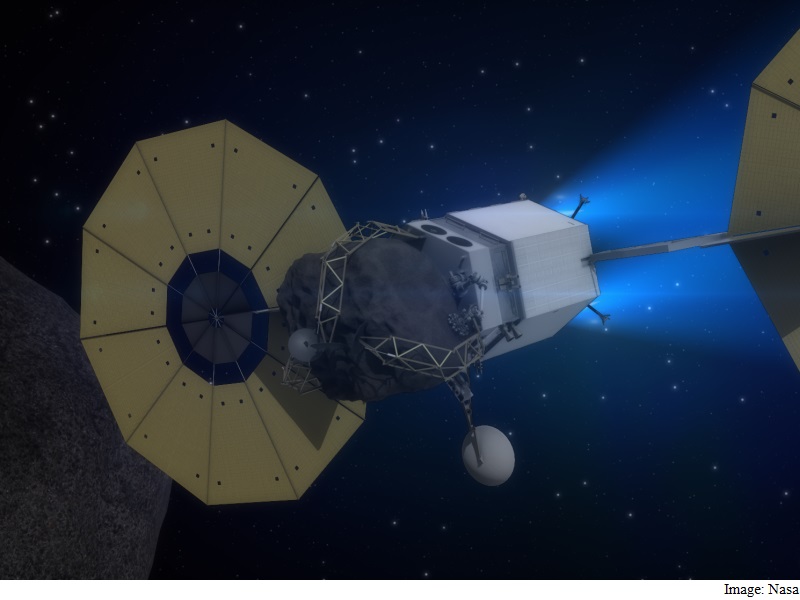
Nasa is developing world’s first space shotgun that can blast asteroids into small pieces for collection as samples when a robotic spacecraft reaches near one such space rock in the near future.
Along with a Brooklyn-based company Honeybee Robotics, the US space agency is working on a shotgun – as part of its Asteroid Redirect Mission (ARM) – that will test the strength of an asteroid to determine if it is sturdy enough for sampling, New York Post reported on Sunday.
The ARM aims to chop off a massive chunk of an asteroid and shift it into the Moon’s orbit. Then, a manned spacecraft will collect samples and send these back to the Earth for further examination.
“Collecting and characterising samples from asteroids is an important science goal in itself, and Nasa has identified it as a key step toward human exploration of Mars,” Kris Zacny, director of exploration technology at Honeybee Robotics, was quoted as saying.
The US space agency plans to launch the unmanned ARM in early 2020s. As part of it, the scientists will use a robotic spacecraft to capture a large boulder from the surface of a near-Earth asteroid and move it into a stable orbit around the moon for exploration by astronauts.
Following its rendezvous and touchdown with the target asteroid, the uncrewed ARM spacecraft will deploy robotic arms to capture a large boulder from its surface.
With the shotgun, firing a bullet at an asteroid’s surface will enable physicists to work out the solidity of the rock by measuring its rebound speed.
Nasa has identified three valid asteroids for the mission so far: Itokawa, Bennu and 2008 EV5.
The agency expects to identify one or two additional candidates each year leading up to the mission.
Throughout its mission, the ARM robotic spacecraft will test a number of capabilities needed for future human missions.
“Asteroids are a hot topic. Not just because they could pose a threat to Earth, but also for their scientific value and Nasa’s planned mission to one as a stepping stone to Mars,” said Jim Green, director of Nasa Planetary Science, in a statement.
[“source-gadgets.ndtv”]

